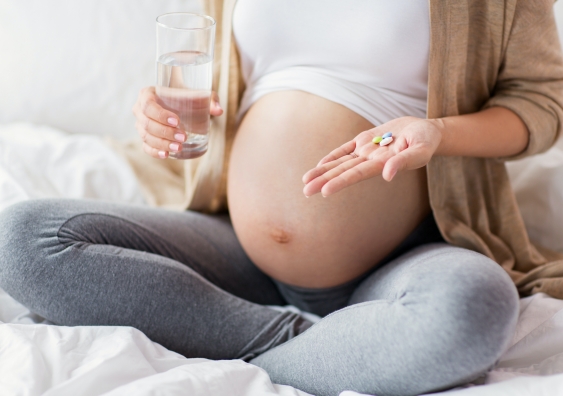There are many aches and pains associated with pregnancy. Even though joint pain can occur anywhere or at any time during pregnancy, it is more likely to occur in certain areas and during the second and third trimesters pregnancy joint pain That is why it is not rare to see many of us with our hands on our lower backs.But what can you do? There are safe and effective ways to relieve joint pain.
Pregnancy Joint Pains Common Areas
It is likely that you will experience joint pain throughout your body during pregnancy, but certain areas will be more affected.
- Sacroiliac/Hip Joint Pain-The sacrum and ilium junction are the sacroiliac joints (SI). These joints support body weight by distributing it evenly across the pelvis and linking the tailbone to the pelvis.
- Lumbar Or Lower Back Pain– The pelvic-area ligaments are softened, which leads to lower back pain.
- Knee Pain– Overweight people, sometimes experience pain in their knee joints.
- Pubic Symphysis/Pelvic Joint Pain– Your pelvic region may feel pain in the front center of your pubic bone, in the lower back, or the perineum. An even more serious condition can result from this called symphysis pubis dysfunction.
Pregnancy Joint Pain Causes
The following factors contribute to joint pain during pregnancy, according to Carolyn Cokes, MD, an OB-GYN at Mercy Medical Center:
- The hormone relaxing relaxes the ligaments during pregnancy
- increased weight on your lower extremities
- due to postural changes resulting from pregnancy,
here are some of the most common causes of joint pain in pregnancy.
Growing Uterus
The American College of Obstetricians and Gynecologists (ACOG) study shows that as your uterus expands, it changes your center of gravity and weakens your abdominal muscles.
Dr. G. Thomas Ruiz, an OB-GYN at Memorial Care Orange Coast Medical Center, points out that pregnancy shifts the center of gravity, resulting in additional stress and low back pain.
Weight Gain
Weight gain doesn’t just happen in your belly. During pregnancy, all parts of your body expand along with your uterus. You experience pain in your hips and bones when you sleep, sit, or walk when you gain weight, especially in the hip area. Just about anything causes you pain.
After childbirth, your body goes back to its original size, but the extra weight stays on your hips, thighs, and belly. Your feet swell and your ankles become larger. Your legs are wider, and you may have to buy new clothes in bigger sizes. Even if you lose weight after pregnancy, it’s still hard to get back to where you were before you got pregnant. Weight gain can be a sign of trouble with your thyroid. When your thyroid is working well, you have enough energy to do all the things you want to do during pregnancy.
Pregnancy Hormones
Pregnancy hormones relaxin and progesterone are primarily responsible for the pain or softening of joint ligaments. Your body secretes a hormone called relaxin during pregnancy, which causes ligaments to become loose.
When this occurs, some joints lose their normal stability, causing them to feel loose during daily activities.When your body releases relaxin to widen your pelvis, you may experience back pain. In turn, this causes the SI joints to become more elastic, which leads to pain.
According to Ruiz, the softening of the pelvic ligaments allows for the pelvis girdle to shift in order for the baby to pass through the birth canal.
Posture Problems
The extra weight you carry forward in your body is going to change your posture. You’ll notice a redistribution of weight around your belly as your baby grows. Your hips and lower back may feel sore as a result.Further, caring for a child who still rides on your hip can cause posture problems that result in joint pain in the hips and lower back.

